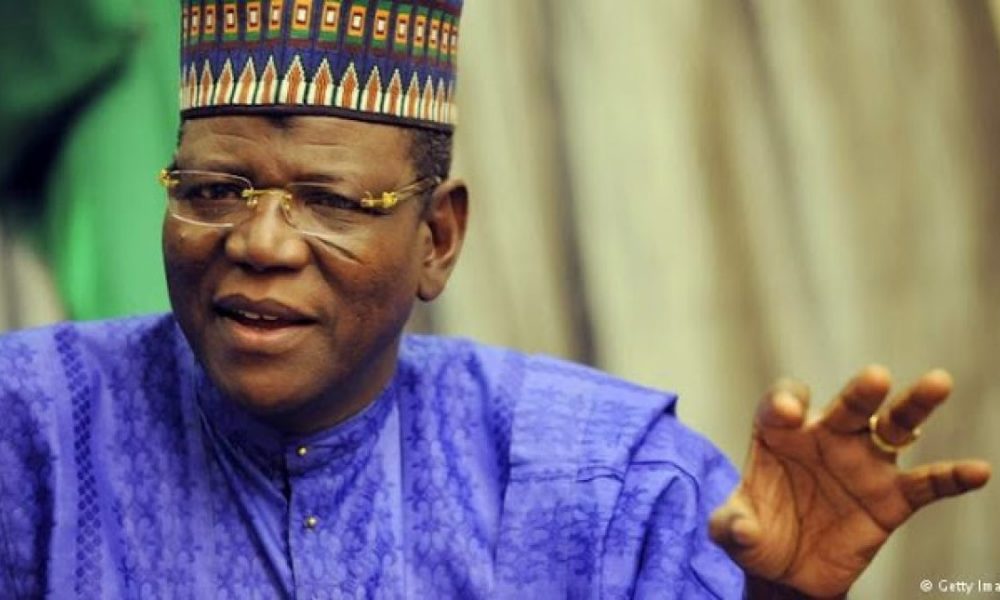Former Governor of Jigawa State, Sule Lamido, has disclosed how he directly urged former Head of State, General Ibrahim Babangida (retd), to resign during the June 12 crisis following the annulment of the 1993 presidential election, which MKO Abiola won.
In a passage from his autobiography, Being True to Myself, released on May 13, the former National Secretary of the now-defunct Social Democratic Party (SDP), recounted Babangida’s reaction, stating that no Nigerian would have the audacity to demand his resignation in person.
Lamido expressed his scepticism regarding Babangida’s rationale for the election annulment, noting that during their discussion at the Presidential Villa, Babangida’s assertion that Abiola could not assume office due to the government’s debt to him seemed to be mere moralising.
Naija News reports that in chapter 7, titled ‘June 12 Consumes IBB’, Lamido revealed, “I was at the Nicon Noga Hilton hotel suite (now Transcorp Hilton) when my phone rang one early morning. The voice identified itself as Col. Bamalli and said that the C-in-C wants to see you now. Being unfamiliar with the nomenclature, I asked, Who is C-in-C? to which he replied, Mr President.
“I said, but I am just waking up, I haven’t even had my bath. Unknown to me, Babangida was on the parallel line. I heard his voice, Kai Sule, ka zo yanzu (Hey Sule, come over right now”). I said, Yes Sir!”
Revealing further, Lamido recalled telling IBB that “No, the SDP is done with any discussion with the federal military government concerning the June 12 elections. We shall not participate in any new election, as far as we are concerned. It must be June 12 or nothing else.
“I was adamant against any form of arrangement for a new political transition that he was now proposing. However, the actions and utterances of the self-appointed champions of June 12. The National Democratic Coalition and others compelled the leadership of the SDP to reconsider their position. In my discussion with Babangida, being the first time we met, he found me genuine, with no pretensions and even maybe naïve.
“Then he asked me, Sule, what do I do? In my naïve and innocent way, I told him frankly, Sir, you must resign and leave office. Immediately, I said that his countenance changed. I saw fire in his eyes; for some minutes, he was speechless.
“He (Babangida) looked at me straight and said, Sule, no Nigerian can dare say that to me, and I know Nigerians very well. I never thought you could be that daring. You are very lucky. I see in you someone who is godly. I know whatever you have been saying or doing was genuine and not induced. Whatever you say or do, right or wrong, is your personal understanding of issues. Even if it were madness, it is original, a reflection and a reflection of your true self.”
The former Governor of Jigawa State stated that Babangida expressed a desire to have met him sooner, recognizing that his earlier perceptions of him were incorrect.
Lamido elaborated that the significant discussions between the negotiators of the National Republican Convention and the SDP, along with Babangida’s team, resulted in the establishment of Chief Ernest Shonekan’s Interim National Government in 1993.
He stated, “Before Babangida could announce the formation of the Interim National Government, he must have felt that he needed to have a suitable person to head it from the Southwest, someone who could be accepted by the Yoruba, as a kind of consolation and a person that had good connections with the British Government, which had been piling diplomatic pressure on the military government.
“As a former chairman of the United African Company (UAC), one of the oldest British companies in Nigeria and a very strong pillar in the country’s economy, Chief Earnest Shonekan fits the bill.
“Mr. Shonekan was well respected in the corporate world; he has the stature and national acceptance and was not controversial.
“Although none of their prominent politicians had played any role in the elections, the Yoruba now wanted to hijack the victory of the SDP and its presidential candidate, Chief Abiola, and make it their own affair.
“The choice of Shonekan, a Yoruba, was to demonstrate that the annulment of the June 12 election was not because Abiola was a Yoruba.”
Lamido stated that, contrary to speculation, the NRC and SDP were not involved in selecting Shonekan as the head of the Interim National Government.


![UEFA Releases Best European Leagues In 2024-2025 [Top 20]](https://mcglobalmegaconcept.com/wp-content/uploads/2025/05/soccer-pfa-asks-uefa-to-add-concussion-substitution-rule-as-_TcjNLNV-1000x600-150x150.jpg)